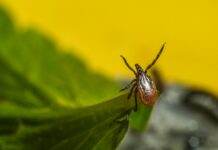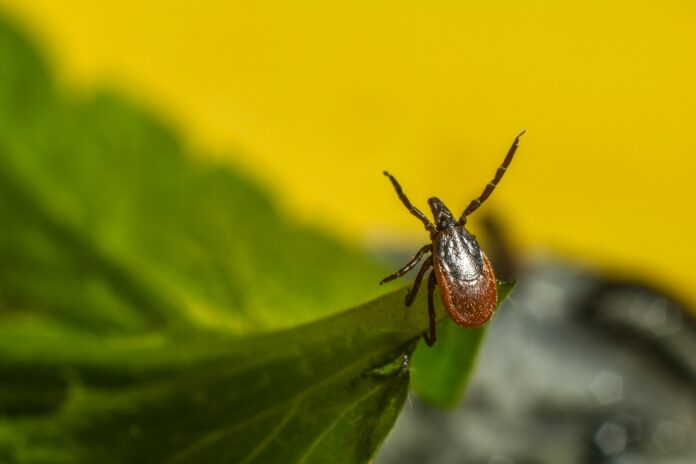For Nova Scotians who enjoy spending time outdoors, ticks can be a real pain — and sometimes carry a much bigger threat: Lyme disease. But researchers at Acadia University in Wolfville may have discovered a natural weapon in the fight against these pesky parasites.
Luis Anholeto, a researcher at Acadia, stumbled upon an unexpected discovery while collecting ticks for research. The ticks kept dying after coming into contact with a specific type of fungus, Clonostachys rosea, commonly found in Nova Scotia soil. This sparked Anholeto’s curiosity, leading him to further investigate the fungus’ potential as a tick control method.
Acadia tick research lab focuses on eco-friendly solutions
Anholeto’s research is part of a larger effort at Acadia’s tick research lab, a collaborative project led by associate professors Nicoletta Faraone and Laura Ferguson. The lab researches solutions for tick control, with a particular focus on using natural products.
“Our lab is dedicated to finding innovative solutions for tick management and our focus is basically on using natural products for development of repellents,” explained Anholeto to CBC News.
This research is particularly timely given the significant increase in Lyme disease risk across Nova Scotia. The disease, transmitted through the bite of an infected blacklegged tick, can cause flu-like symptoms in its early stages and progress to serious complications like nerve pain, arthritis, and memory loss if left untreated.
Can this fungus be a viable tick control solution?
While C. rosea shows promise as a natural tick killer, more research is required before it can be considered a viable control method. Faraone highlights the potential environmental benefits of this approach compared to traditional methods.
“These are a little harsher approaches that need to be used with discretion because they can harm beneficial insects like pollinators or other species that are good for our ecosystem,” Faraone said.
However, Ferguson cautions that the impact of the fungus on other organisms needs to be carefully studied.
The research team at Acadia is committed to further investigating the effectiveness and safety of C. rosea for tick control in Nova Scotia.
“I would say there is not a magic cure that will eliminate ticks at all,” added Faraone. “But for sure we can use different little approaches that all together will make a difference.”
In the meantime, Nova Scotians are encouraged to use tick repellent and perform thorough checks of their clothes, shoes, and exposed skin after spending time outdoors. With continued research efforts, the future might hold a more natural defense against these unwelcome hitchhikers.









































